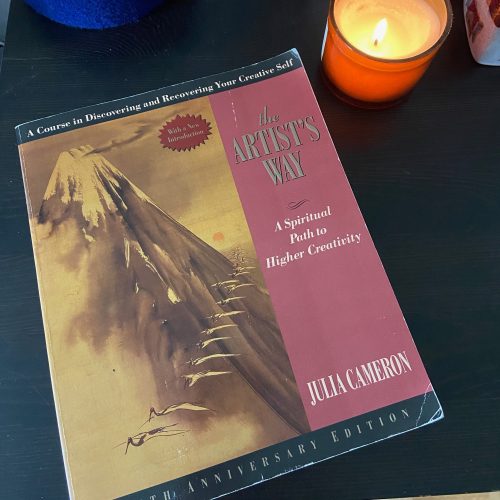
Sending Letters and Postcards
Dear Nora,
The longer we stay in Spain, the more aware we become of the need to put forth some effort to maintain healthy relationships across the ocean. As an expat, it can be incredibly difficult to stay in touch with all of the friends and family that you would normally maintain relationships with if you were living in your home country. However, if it’s important to you to maintain those bonds, there are some relatively simple and inexpensive ways to do so.
We’ve previously spoken about the text messaging app, Whatsapp, that we recommend you download to stay in constant contact with friends and family. We’ve also put together this resource with further options for staying in touch with loved ones while traveling and/or living abroad. Still, today we’d like to encourage you to fall back on the age-old tradition of sending letters, cards, and postcards.
Depending on how young you are, you may have never really gotten into the idea of sending physical mail and this idea may feel foreign and odd to you. But we assure you, the thrill of getting something personal in the mail is real and it still brings a smile to any recipient’s face!
Why send snail mail?
Taking the time to sit down and pen out a letter to Mom or Dad may seem unnecessary when you can shoot them an email or Whatsapp that will arrive in an instant, but we believe snail mail is more valuable for these reasons:
 1.) Make your loved ones FEEL loved: If you have parents who are anything like ours, they will be sending little cards and ‘hellos’ in the mail as soon as they get your address. Whether you are the first to ever wander so far from the nest or the second or third to put them through this separation anxiety, the reality is the same—they’re not used to having their baby so far away. They are thinking about (and probably worrying about) you 24/7.
1.) Make your loved ones FEEL loved: If you have parents who are anything like ours, they will be sending little cards and ‘hellos’ in the mail as soon as they get your address. Whether you are the first to ever wander so far from the nest or the second or third to put them through this separation anxiety, the reality is the same—they’re not used to having their baby so far away. They are thinking about (and probably worrying about) you 24/7.
While they probably do take comfort in the thought that you are so busy exploring and discovering a new culture that you don’t have much time to write, the short letter or personalized card from time-to-time will bring a HUGE smile to their face! It means a lot to be remembered and reminded that someone took time out of their busy life to drop you a line, especially (so we are told) if that someone is your child.
2.) Maintain the connection: The same goes for your friends—you may be the first to study abroad and so people are very curious and intrigued to know about your lifestyle so far away. Or perhaps you have friends who have studied abroad in the past and who are a bit envious that you’re living that exciting life while they’re back to their everyday routine in the States. Whatever the situation, sending a note affirms the fact that these friends ARE on your mind and you haven’t forgotten about them in the novelty of your Spanish adventure.
It’s important to realize that, especially if you live abroad long-term, some friendships start to drift apart and this can be very disheartening. However, if you make an effort to share a bit of your life abroad with your friends through sending them genuine updates about your travels and everyday life it opens up a means of communication for them to share the same—and thus for you to actually know about each other’s lives. In reality, it is not the distance between friends that sometimes leads to unraveling friendships but rather the reality that they no longer know anything about the other’s day-to-day in order to feel connected. Letters and cards can prevent this loss of connection.
3.) Mundane details matter: On that note, remember that you don’t have to say anything awe-inspiring in your letter. Sometimes we feel that we should only send mail if we have some special to celebrate or report and that’s simply not true.
Case-in-point: Dani once wrote a really long letter in which she explained little things like the persianas (specific kind of blinds) on our windows in Spain and how garbage pick-up and recycling work in Granada. Her parents were thrilled! Why? Because those little details felt mundane to her but, for them, they were intriguing differences that helped her parents picture life 4,000 miles away and feel a part of it each time they picked that letter up.
On the flip side, be sure to ask about their lives and show interest in the events or developments you’ve missed that are important to the people you are writing to. Even if you feel like you’re leading a ‘more interesting’ life at the moment, friends especially can get easily turned off if you send cards and postcards that simply feel like you boasting rather than communicating.
Pro-tip: If you’re filling out a postcard from the beautiful, lively Plaza Mayor square in Salamanca, for example, mention how you’re enjoying it and wish your friend were there to sip a sangria with you. Trust us, it’s those little comments that make all the difference.
 But I don’t have time to write to all my friends and family!
But I don’t have time to write to all my friends and family!
You may be reading this thinking “This all sounds well and good, but if I sent mail to everyone I cared about I’d never get anything else done!” We get it, it can be time-consuming to write so many cards and letters. We certainly go through phases in which we’re really good at staying in touch and others when we’re not. That’s why we recommend these three things to help you maintain that connection without losing your sanity.
1.) Start with postcards: If you’re new to this kind of communication, we recommend starting with postcards rather than longer-form writing like letters. The condensed space available on the back of a postcard allows you to do the nice deed of sending a card without the burden of having to write too much. This is especially useful if you are abroad for the first time (and thus able to send postcards of your new home or travel destinations that loved ones haven’t seen yet) OR if you’ve been abroad for a long time and have a stockpile of postcards from past trips that you never sent. (Or maybe that’s something that only happens to Dani…?)
2.) Create a sending schedule: Every relationship is different so we won’t tell you that you need to send a postcard to every distant relative on your family tree. However, you probably have a good idea of who has been most excited about your abroad adventure and you should certainly put those people on your list! Quite literally, it can help to keep an actual list somewhere of everyone you would like to send a note to while you are abroad. Then, set a schedule or at least a goal for when / how often you want to write.
For friends or extended family, 1-2 times a year (essentially, just once if you are studying abroad for a semester) is a decent schedule to keep you in touch without overextending yourself. For your immediate family (especially parents and maybe grandparents), once a month would likely be appreciated.
 Pro-tip: Dani likes to send Christmas cards and a birthday card to all of her friends, so that already accounts for two cards a year. She’s now trying to get back-on-track with this correspondence (after a long hiatus during the lockdown months and since) by prioritizing card-writing to anyone on her more regular list during the first week of each month.
Pro-tip: Dani likes to send Christmas cards and a birthday card to all of her friends, so that already accounts for two cards a year. She’s now trying to get back-on-track with this correspondence (after a long hiatus during the lockdown months and since) by prioritizing card-writing to anyone on her more regular list during the first week of each month.
3.) Don’t expect a response: We know some people worry that if they send a letter they’ll end up in a letter-sending chain that they can never escape from without being impolite. Now, you may happen to know the one person who does respond and who will expect the letters to keep coming regularly. However, it’s most common for us to simply receive a text message of thanks when someone receives a card (and sometimes no acknowledgement at all), so don’t avoid this act of kindness for fear of being sucked into it forever!
Final Thoughts
We understand you may only be spending 4-5 months in sunny Spain and simply don’t want to take an hour each week to send a letter home. Honestly, you probably spend a decent amount of time catching up over social media already. Still, we believe this old-school method of communication is the key to balancing your two worlds. While social media / a blog may be just as much for your own posterity’s sake, sitting down to write and then obtaining the proper postage to send a card or letter on your own volition is a sweet gesture that everyone will remember.
 Conclusion? Sending letters and postcards is a relatively simple way to make a big difference from afar. Send a card on your best friend’s birthday. Write a letter if you’re going to miss an important holiday with family. Send a postcard when traveling with a sincere note about wishing your sister was there. Write a letter to grandma just because.
Conclusion? Sending letters and postcards is a relatively simple way to make a big difference from afar. Send a card on your best friend’s birthday. Write a letter if you’re going to miss an important holiday with family. Send a postcard when traveling with a sincere note about wishing your sister was there. Write a letter to grandma just because.
Remember, it’s not actually the length or content of your letters that matter, it’s the thought that counts and assures your loved ones that they’re on your mind. And trust us, that kind of peace of mind is well worth that international postage.
Sincerely,
Spain




